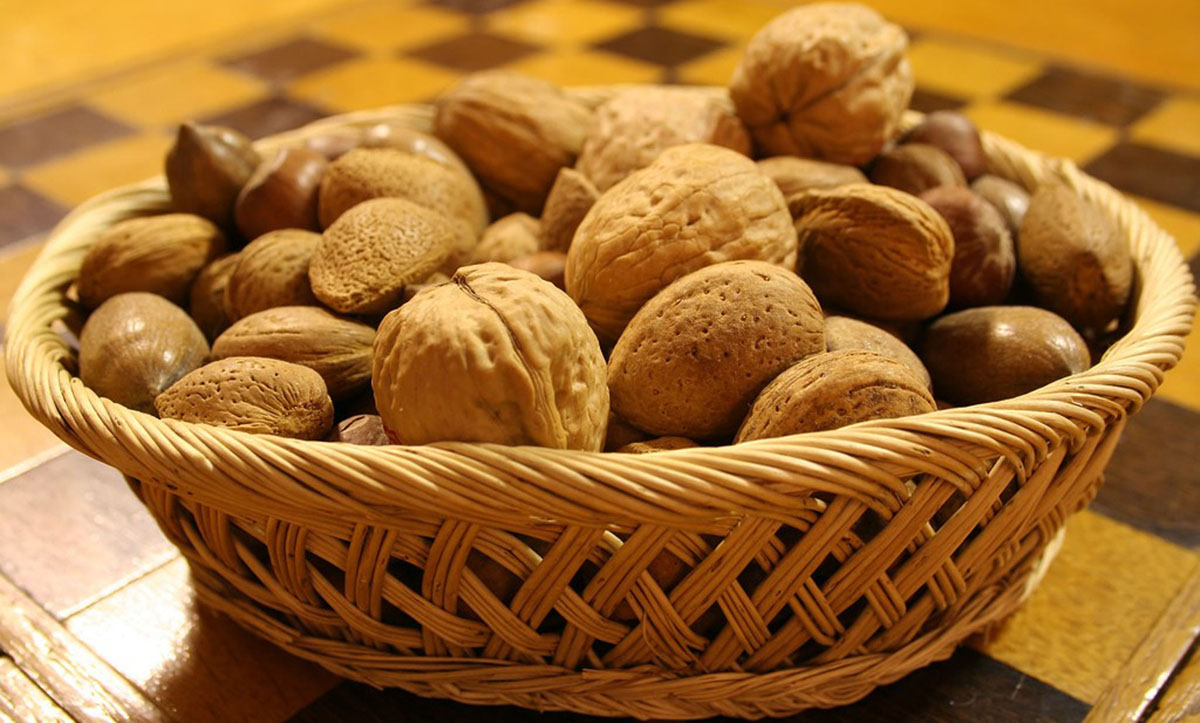Two new studies tell us that eating tree nuts, such as pistachio nuts and almonds, may stop the progression of prediabetes to full-blown type 2 diabetes, without causing weight gain.

Researchers from Spain and the United States reported their findings at the 2014 European Congress on Obesity. One of the presenters, Dr. Mònica Bulló, a physician and researcher with the human nutrition unit at Virgili University, Reus, Spain, told a Medscape reporter "I would advise people to eat a handful of nuts whenever they can."
Pistachio Power to Fight Diabetes
Dr. Bulló's and her colleagues recruited 49 overweight or obese volunteers to eat 57 grams (2 ounces, or about 100 kernels) of pistachio nuts every day for 4 months. At the end of the experiment, the volunteers had significantly reduced fasting blood sugar levels, insulin levels, and insulin resistance.
Typically, just about anything that really lowers blood sugar levels in prediabetic subjects also increases weight. Fat cells become storage depots for excess glucose in the bloodstream. In this study, however, even though the volunteers added about 310 calories to their daily diets, they didn't gain weight. This result is consistent with many other studies of the use of tree nuts such as pistachios and almonds as a supportive therapy of metabolic disease.
American Researchers Fight Prediabetes with Almonds
Also at the conference, Dr. Sze Yen Tan, a PhD nutritionist at Purdue University in Lafayette, Indiana, made a poster presentation of the results of a 4-week study of 137 adult volunteers with prediabetes. The volunteers were divided into two two groups. One group was asked to eat 43 grams (1-1/2 ounces) of almonds every day. The other was not.
The significance of lower post-prandial blood sugar levels is that they are an indication that there is a better match between the ability of the pancreas to "dump" a large amount of insulin quickly to get blood sugar levels back to normal quickly. Muscle, liver, and fat cells then don't have to shut down receptor sites for insulin to keep themselves from being flooded with sugar. And when these cells don't shut down insulin receptor sites, they don't become "insulin resistant," setting off a vicious cycle of higher production of insulin and lower response to insulin that eventually causes beta cell depletion, also known as pancreatic burnout.
In Dr. Tan's experiment, despite the fact the volunteers were consuming an additional 245 calories a day, they didn't gain weight.
Why It Makes Sense to "Go Nuts" If You Are Prediabetic
There are at least 80 studies of using nuts to treat metabolic diseases in the published medical literature.
See Also: Dietary Treatment Of Type 2 Diabetes Mellitus - Effectiveness Of Nuts
There have even been several studies that found that volunteers lost weight despite eating more calories from almonds. Studies tend to confirm that eating nuts lowers blood sugar levels, lowers blood pressure levels, and has favorable effects on cholesterol and triglycerides.
Should You "Go Nuts" To Prevent Type 2 Diabetes?
Obviously, not everyone should eat nuts to prevent type 2 diabetes. Some people simply can't eat nuts because they are allergic to them.

If you have experienced any of the following symptoms after eating nuts, or if your doctor has used these terms to describe your symptoms after eating nuts, you shouldn't try eating nuts to prevent type 2 diabetes.
- Abdominal pain
- Angioedema (especially if presenting as a swollen throat)
- Cardiovascular collapse (extremely slow heartbeat, or extremely fast heartbeat with fainting or extreme weakness)
- Cough
- Diarrhea
- Dysphonia (inability to hear)
- Dyspnea (shortness of breath)
- Feeling of impending doom
- Flushing, redness of the face
- Nasal congestion, nasal pruritus (itching), rhinorrhea (runny nose), and sneezing
- Nausea
- Ocular injection, ocular pruritus (itch), conjunctival edema (swelling in the eyelids), periocular swelling (swelling around the eyes)
- Oropharyngeal pruritus (itching in the mouth and throat)
- Stridor (noisy breathing)
- Urticaria (hives)
- Vomiting
- Wheezing
It's also possible to have a relatively mild allergy to nuts, so mild there aren't any noticeable symptoms when just a few nuts are consumed, that nonetheless can cause serious symptoms when larger amounts of nuts are consumed on a regular basis.
It is always a good idea to start changes in your diet slowly. Unless you already know you don't have an allergy to nuts, eat maybe a few kernels one day, a few more the next day, building up to the recommended 1-1/2 to 3 ounces (43 to 84 grams) in about a week.
If you are allergic to other nuts, it is highly likely you are allergic to pistachios. So what's the food that makes a difference in the progression to diabetes if you can't eat nuts?
Another study in which Dr. Bulló participated suggests that a Mediterranean diet fortified with generous amounts of extra-virgin olive oil may be as good, or even better.
The Prevención con Dieta Mediterránea Trial, which ran from 2003 to 2010, found that volunteers who ate large amounts of extra-virgin olive oil were 15 to 57% less likely to develop type 2 diabetes than volunteers who did not.
The data suggested that consuming both kinds of healthy fat in large amounts might even increase the risk of diabetes.
However, adding these kinds of fat to an otherwise healthy Mediterranean diet, including lots of vegetables, not a lot of fruit, daily servings of fish or pork, small amounts of sourdough bread, and very few sweets, did not cause weight gain. And when only the consumption of olive oil was encouraged, calorie consumption didn't make a difference in whether people became diabetic.
See Also: Intermittent Fasting And Type 2 Diabetes
Neither did weight.
Preventing the progression of type 2 diabetes doesn't have to be all about losing weight and cutting out the fat. It can be about eating all you want of foods that are inherently good for you. Both nuts and olive oil are inherently good for you, assuming you don't have allergies, but focus on one, don't try to add both on a daily basis. It is not necessary to exclude olive oil if you are eating nuts for your health or vice versa, but don't make both healthy foods a daily habit.
- Salas-Salvadó J, Bulló M, Estruch R, Ros E, Covas MI, Ibarrola-Jurado N, Corella D, Arós F, Gómez-Gracia E, Ruiz-Gutiérrez V, Romaguera D, Lapetra J, Lamuela-Raventós RM, Serra-Majem L, Pintó X, Basora J, Muñoz MA, Sorlí JV, Martínez-González MA. Prevention of diabetes with Mediterranean diets: a subgroup analysis of a randomized trial. Ann Intern Med. 2014 Jan 7.160(1):1-10. doi: 10.7326/M13-1725.
- Salas-Salvadó J, Guasch-Ferré M, Bulló M, Sabaté J. Nuts in the prevention and treatment of metabolic syndrome. Am J Clin Nutr. 2014 Jun 4. pii: ajcn.071530. [Epub ahead of print]PMID: 24898227.
- Photo courtesy of Andrew Malone by Flickr : www.flickr.com/photos/andrewmalone/5408810798/
- Photo courtesy of Iain Buchanan by Flickr : www.flickr.com/photos/jaeden/111015656


Your thoughts on this